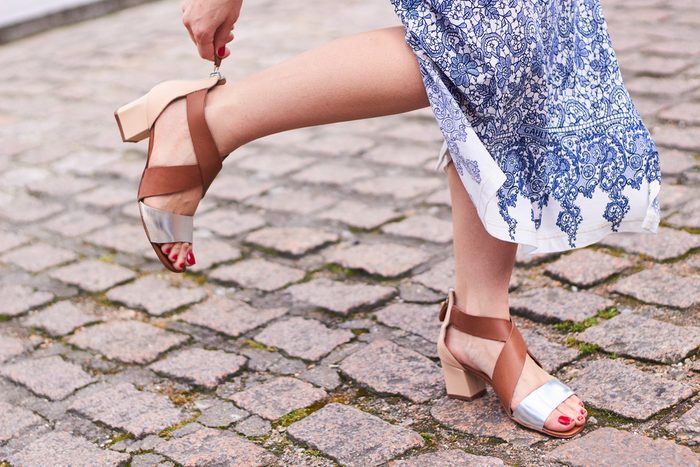
Prevent foot odour
Your feet beg to be let loose during the steamy summer season, and with beautiful sandals and nail polishes on the market, who are you to argue? But summer’s heat can also lead to sweaty feet, and with over 250,000 sweat glands on each foot, that’s a lot of perspiration.
While your sweat glands help to keep your body cool, the moisture they release can become a magnet for bacteria, creating an unpleasant and embarrassing fragrance wafting from your toes.
Don’t hide your feet in shame. Here are seven easy tips for keeping foot odour at bay this summer.
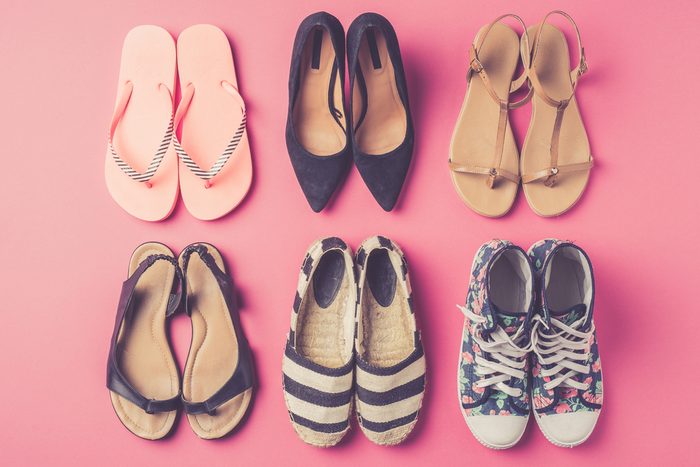
1. Store your shoes properly
Chucking your shoes into the depths of your closet only leads to a jumbled mess, and a breeding ground for bacteria. And forget storing just worn footwear in their original boxes – this practice won’t curb the proliferation of smelly germs either – bacteria flourish in small, dark places where damp shoes congregate.
To halt the growth of bacteria and the unattractive scents that they create, Stephen Hartman, a Waterloo, Ont. chiropodist and CEO of the Canadian Federation of Podiatric Medicine recommends keeping your shoes in an open location that allows air to circulate around them.
“Bacteria are thirsty; they need moisture to survive,” he says. By storing your shoes where they can dry out, you’ll be eliminating the damp environment that bacteria adore.

2. Rotate your footwear
Even if you’ve fallen in love with a particular pair of shoes, do your feet a favour and don’t wear them every day. Hartman suggests rotating your footwear regularly so each pair can breathe, and dry out.
An added bonus, you’ll appear more fashionable by switching up your look, instead of relying on the same trusty pair of flats or heels.
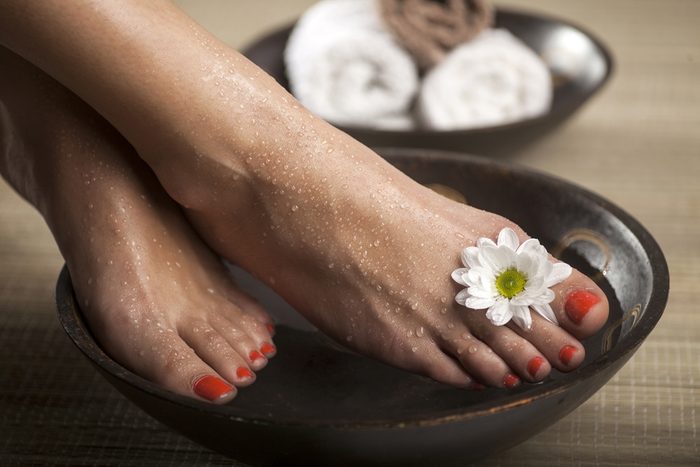
3. Soak your feet
Try soaking your feet for 15 minutes several times per week at home. Doing so is a quick, inexpensive and effective method for washing away lingering bacteria, and eliminating offensive smells.
Try immersing your feet in a basin or bathtub of warm water mixed with a few drops of tea tree oil, a few spoonfuls of baking soda and Epsom salts. This concoction will leave your feet feeling fresh, relaxed and nicely scented.
“Some people use soap or tea bags, too – anything that’s an astringent (a drying agent),” says Hartman.
After soaking, Hartman recommends sterilizing the basin, foot spa or tub with a diluted bleach solution to prevent discarded bacteria and fungus from attacking the feet of the next user.
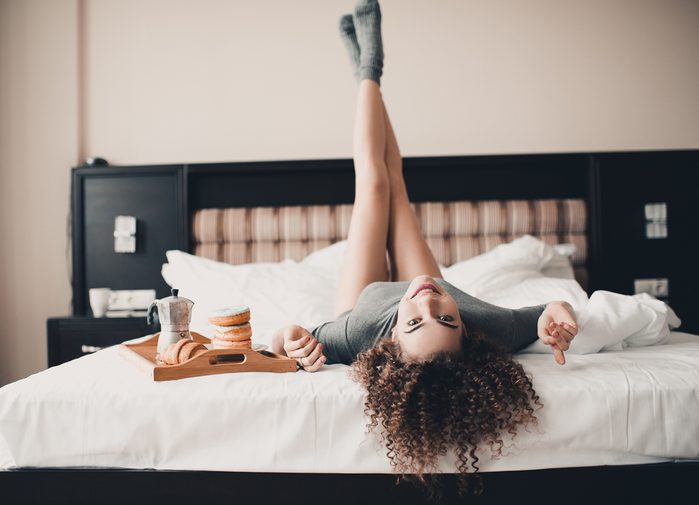
4. Wear socks
When wearing running shoes, boots or other closed-in shoes, Hartman says that it’s imperative to don socks.
“Closed-in shoes worn without socks are a major contributor to odour,” he says. “Without socks, the moisture from perspiration gets trapped in the shoe’s insole creating an odour that’s unbelievably strong and very hard to eradicate from the shoe.”
Depending on your preference, either cotton socks or a cotton-synthetic hybrid can hold in the moisture. If your feet sweat a lot during the day, it’s also advisable to change into a new, dry pair once you get home from work.

5. Get ventilated shoes
Closed-in footwear like running shoes, flats and boots made of synthetic materials (plastic), or heavy leather won’t allow the perspiration from your feet to escape.
Purchase footwear made of canvas, or mesh for a breezier walk. And during summer, rely on sandals, wedges and open-toed styles that let air circulate around your feet. For men, Hartman says a trip to the shoe repair shop can add ventilation to their workday footwear.
“They can put little vents in leather work boots to allow for air exchange,” he says. “Vents make a world of difference.”
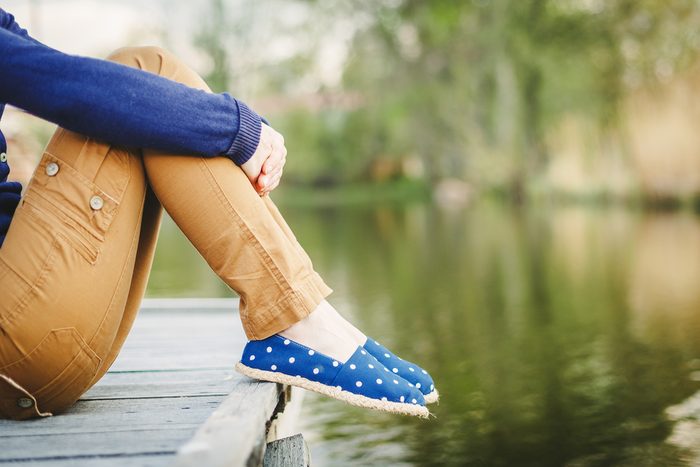
6. Try Botox
Botox injections can battle more than crow’s feet around your eyes – they can also stop excessive foot sweating, a condition known as hyperhidrosis.
“Typically it’s only recommended for severe cases; it’s not commonly done”, says Hartman. While not a permanent fix, Botox injections once a month can limit excessive foot sweating. However, Hartman warns that a shortage of foot sweat means an increase of perspiration elsewhere on the body, most typically the groin, underarms and the face.
“Sweating is a natural regulator of our temperature. You still want to sweat through the foot, just the normal amount without the odour,” he says.

7. Get help from a pro
If odour’s still a problem, visit a chiropodist or podiatrist for assistance. “We might take a skin sample to make sure that it’s not a severe dermatological problem,” explains Hartman.
If the cause isn’t complicated, the specialist will recommend an over-the-counter product such as a medicated foot powder. They might also give you an anti-fungal foot spray, which can conquer the growth of foot bacteria and its annoying smell.
“In most cases these things are solved with one or two visits,” says Hartman.
